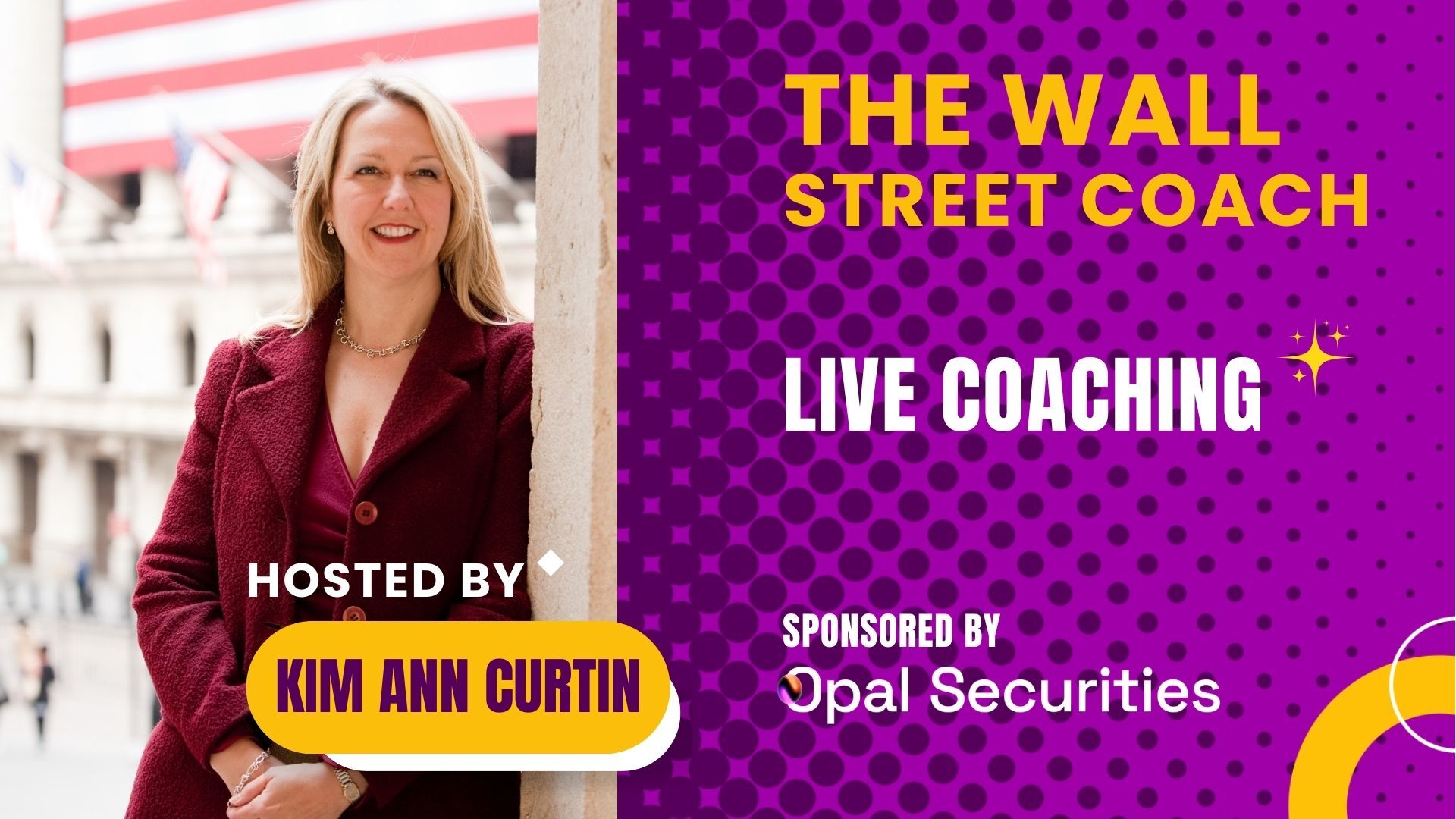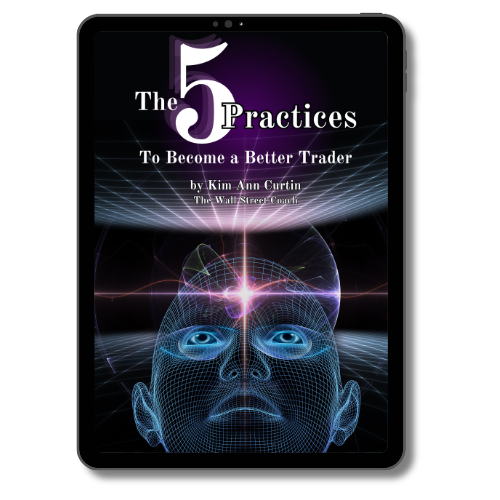
Do you struggle with FOMO in trading?
Be honest. How often do you trade because you’re scared of missing out? Or, how often have you stayed in a trade too long because you’re scared of losing?
If you haven’t struggled with trading FOMO, consider yourself lucky — and in the minority. In a recent Twitter poll, I found that the vast majority of traders experience FOMO either sometimes or all the time:
How often do you experience FOMO in trading? #traders #trading #tradingpoll #tradingFOMO
— Kim Ann Curtin (@kimanncurtin) October 6, 2022
FOMO in trading is directly behind many of the biggest issues for traders — regardless of their level of experience. FOMO and fear of loss remain a constant struggle even for seasoned, longtime traders. It makes you wonder…
Why is trading FOMO so hard to deal with, and why does it plague traders throughout their careers?
Because there’s a deeper root to these emotional struggles. And it usually has nothing to do with trading. But before we dig in, a few basics…
(P.S. In my book, “Navigating FOMO and Comfort With Loss,” I explore the gritty underside of FOMO and what causes it. The book also includes some powerful exercises to begin facing the demons that cause FOMO in your life. Check it out now!)
What is Trading FOMO?
FOMO, or fear of missing out, is a common occurrence not only in trading, but in life.
It’s that feeling that there’s something better on the other side of today or this moment.
Most people want to know how to avoid FOMO in trading, but first, it’s important to understand something…
Believe it or not, the thinking behind the FOMO mindset isn’t all bad.
It’s a human survival technique from thousands of years ago. On the positive side, it can help us continue to strive and to take action to make sure we are as safe as can be and can have as many of our needs met as possible.
However, it’s easy to get caught up in the FOMO trap and fall into a cycle of feeling like you’re constantly waiting for your best life to begin.
If you’re living constantly in the future or “what ifs” you’re not present to what you currently have or are experiencing right now.
Some people might argue that what they have right now isn’t so fantastic. Why not focus on the future instead?
I won’t dismiss that. I’m all about intention and creating your future. But it’s also important to find peace where you are.
If you’re not able to find peace with the here and now, chances are you’ll develop an unhealthy habit of always looking forward and never appreciating what you have now.
That’s why it’s so important to gain self-awareness about what causes FOMO in your life…
Because if you struggle with FOMO in life, chances are you’ll struggle with it in trading.
FOMO in Trading
Now that you have a better understanding of what’s behind FOMO … How can FOMO affect your trading? There are many ways, but here are some of the most common issues it can lead to:
- Jumping into ill-advised trades
- “Chasing” runners without a plan
- Getting into a trade after the big move has already happened
- Holding + hoping that the stock will rebound
- Not following your plan / sticking to your stops
- Revenge trading + trying to “make up” for losses
Of course, not only can these things lead to staggering losses, but they can also take a huge emotional toll. So how can you avoid FOMO in trading? Start here…
 How to Avoid FOMO in Trading
How to Avoid FOMO in Trading
Now that you understand the FOMO’s meaning in trading, here are some actionable tips to develop awareness around it and begin to avoid FOMO in trading:
Understand That FOMO is Real
First off, it’s important to acknowledge and understand that FOMO is real, and it can have very real effects.
FOMO creates adrenaline spikes that can lead to risky behavior. This can be very dangerous for traders. For example, it can make it feel like you MUST get into a trade. You feel as if you don’t get in, you could be missing out on the big one!
This misplaced urgency to get on the train can lead to poor decision-making — and potentially big losses.
FOMO is real — but it’s not just a matter of self-control. If it were that easy, it wouldn’t be such a problem for traders.
Ultimately, FOMO is driven by a discomfort with the present moment and how things are. To begin to unravel this complicated web, it’s necessary to lean into that discomfort. But where to start?
Get Comfortable With Trading Losses
Getting comfortable with trading losses is easier said than done — but it’s possible. Let me tell you about a trader named Tabitha*… (name changed for privacy)
Tabitha came to me with a desire to gain the tools to control her emotions around losing money.
She had a cycle where she’d profit — but then she started chasing and lost just about everything.
She knew that FOMO was the culprit, but she couldn’t help herself. Her big fear of missing a potential spike often led to bag-holding after an irrational chase.
FOMO was definitely holding her back. But how could she get more comfortable with losses?
Here’s where we started…
Know How to Deal With Those Emotions
For Tabitha, one of the first steps toward getting comfortable with losses was to get back in touch with her own rules.
Stop Breaking the Rules
The thing is, she KNEW what rules she should be following.
She had pursued an education in trading. She knew what she should be doing and what kinds of trades she should look for. But her emotions would take over and override because of the siren call of missing out or making a quick buck or two.
She knew the rules, but she was breaking them because her emotions were getting in the way. This made the self-punishment cycle even worse, because she knew what she should be doing.
But before she could stop breaking the rules, she had to do this…
Recognize Your Trigger
When you know what the rules are and you’re still breaking them, it’s pretty clear that it’s not a matter of self-restraint. For Tabitha, it was important to dig deeper and to look at the specific chain of events or emotional triggers that made her not follow her own rules.
- At what point did she deviate from the road she knew she should stay on?
- What was informing her not following the criteria?
- It’s easy to see that it’s driven by emotion — but what is the void she’s trying to fill?
Along these lines of self-inquiry, Tabitha admitted that usually, rule-breaking started with the sensation that she wanted to “hop on the train before it leaves.” Hearing that, I dug a little deeper and determined that this was something she struggled with outside of trading, too.
She admitted that since she was young, she’s always been competitive — when she sees someone else do something, she feels like she wants to do it too and succeed. She wants to be good — no, great at it. She doesn’t want to be sitting there in the corner watching.
Who is that person who sits in the corner?
According to Tabitha,
That person is antisocial. That person is going to miss out on the fun of the activity, of not being involved. They’re going to miss out on being rich.
Hmm. Do you think it’s possible this voice — telling her that being the person in the corner, missing out, is the worst place to be — is not accurate or wise but is actually some sort of a gremlin or inner dragon?
Focus on What Affects Your Performance
Following that session, I gave Tabitha a homework assignment.
For one week, I challenged her to be that person in the corner. To be the person who “misses out” in small ways. It didn’t have to be huge — it might be holding back on a trade she wasn’t sure about or skipping out on a party she was on the fence about attending.
I urged her to pretend she was a famous actress taking on the role of the girl who’s in the corner missing out. Could she observe what the story was, how triggered the gremlin becomes?
Why go through this assignment? I wanted that story to play out and for her to see what it really might feel like to miss out. I wasn’t convinced the story her gremlin was telling her was actually true.
Take a cue from Tabitha’s homework. If part of her story resonated with you, challenge yourself to go to that “worst-case” scenario and face your gremlin – it doesn’t even have to be in your trading but expose yourself to the heat in someway to observe yourself.
Challenges like this are not fun. But they are necessary due diligence if you want to get to the bottom of what is holding you back as a trader.
If you have a farm or garden, you have to till the soil. Otherwise it will carry not have the nutrients as what was last planted sucked them all out and that will deter new growth. Tilling is time consuming and not a fun process. It’s yucky and tedious. Yet it’s necessary.
It’s the same with this inner work. It’s simple — but not easy. It can help to have a guide.
Seek Out a Trading Coach
Facing what plays into your personal FOMO and fear of loss is a highly personal process.
It also requires a willingness to do the hard work.
As my mentor Raphael Cushnir says, “Resistance is like stepping on a hose with all our might and commanding the water to flow.”
Unfortunately, to actually let the water flow, we must face what is uncomfortable to be with.
It can be helpful to have a guide such as a coach who has expertise in guiding you to be with uncomfortable feelings.
It’s worth it. Once you do change your relationship with the gremlins to turn around and face them and recognize that they are not as powerful as originally thought will change more than just your trading. It could change your entire life.
Interested in working with my team? Get in contact here.
Conclusion
By gaining a better understanding of what’s behind the FOMO in your life and trading, you’ll be able to contend with it better — it can improve your outlook, your decision-making, and your self-compassion.
To further your education on the topic, please check out my e-book, “Navigating FOMO and Comfort With Loss.”
Interested in learning more about The Wall Street Coach? Reach out today.
 How to Avoid FOMO in Trading
How to Avoid FOMO in Trading

